Hiding My Tears on the Metro Train
by Pringle Franklin
Here’s a nice thing about riding the Metro in Paris: people have trained themselves NOT to look at one another directly. It creates the illusion of privacy in a crowded and very public place.
So the other morning, as I was sitting in a seat on the Line 6 trying to weep silently, I took comfort in the fact that no one was going to notice the tears rolling down my cheeks. I bit my lower lip, holding in my sorrow and swallowing my urge to sob. As I glanced around, one man was watching me, but he quickly looked away and pretended not to see my distress. The French are masters at being discreet and for once, I was deeply thankful.
If anyone had patted my arm, offered me a Kleenex, or asked if I needed help, I would have lost complete control and begun weeping from a place deep within my core. The enormity of my grief was staggering. Why was I so disturbed? I was crying for the Christians in the Middle East who are suffering persecution. For the first time, I felt as if I knew them personally, as if their pain was my pain.
Recently I had read a moving story about an Iraqi family — a young married couple with two daughters — who had purchased their first home. The very day that they had hung their curtains, unpacked their dishes in the kitchen, made up the beds, the Islamic State rolled into their town of Qaraqosh in northern Iraq. In August 2014, the 50,000 Christians living there, described as an island of Christianity in the Islamic Ocean, were given 24 hours by ISIS to convert, pay a hefty fine, or flee. The family in the story wisely chose to drive away, leaving behind their new home and most of its contents, which was taken over by ISIS. They are now living as refugees, according to Open Doors ministry.
That story hit me hard because I had spent the previous afternoon visiting a new neighbor in my building, an Iraqi woman of about 25 years with an adorable two-year-old daughter. The 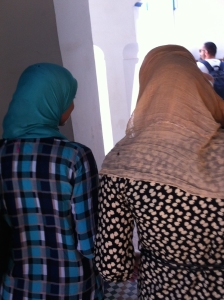 first time I had spotted my neighbor near the elevator, she had been wearing what is strange to me but very normal to her: a Muslim head-covering, or hijab. My heart skipped a beat. Oh no, I thought. Muslims are living in our building now. I hope they are not violent or anti-American.
first time I had spotted my neighbor near the elevator, she had been wearing what is strange to me but very normal to her: a Muslim head-covering, or hijab. My heart skipped a beat. Oh no, I thought. Muslims are living in our building now. I hope they are not violent or anti-American.
This is perhaps a normal reaction, but it is not what Jesus would think, so I felt conflicted. It turned out the Muslim family lived directly above our apartment; I could hear them speaking Arabic to one another at night. Arabic is a language that sounds harsh to those whose ears are not used to it. I noticed this when we were in Morocco. Sometimes it sounded as if people were angry when they weren’t. Hearing the sound of Arabic as I was trying to fall asleep at 11 p.m. did not comfort me.
About a week later, I happened to come into the building as the Muslim family was going out. I stopped to say bonjour, and it turned out that they spoke some English. It also turned out that they were very friendly and eager to converse. When the wife learned that we were American, she actually clapped. They are from Baghdad, so they were used to being around the U.S. military personnel. (Her brother had worked as a translator with the U.S. troops.) Like me, they seemed to wish for peace and stability in their country and in the world. And their eyes were smiling at me as well as their mouths.
I could almost hear the Lord standing there laughing at me and saying, okay, so who are you afraid of now?
No one, Lord, I answered, very humbled.
About a week later, when I had some free time one afternoon, I walked upstairs to pay a call on my neighbor. She was delighted to have a visitor. She does not speak French, and she has not met many friends yet in three months here. Paris is not a very welcoming place for immigrants, to be sure, and if you are Arabic and non-French speaking, you may feel shut out in the beginning. Someone had told her that the Americans and the Spaniards might be the first to befriend her, and here I was, standing at her door.
My neighbor served me coffee in a pretty china cup, along with a chewy confectionary covered with powdered sugar. We sipped our hot drinks and had a lovely conversation. We talked about her life in Baghdad. Women there can drive; they can go shopping on their own; they can choose whether to cover their heads. She told me that the extremist terror groups did not represent true Islam. I told her that I was a praying person, a Christian, and she seemed to respect that, just as I respect her faith. We were both on the same side, the side of loving God and honoring thy neighbor.
I felt happy that I had gotten to know her. The world felt like a smaller place. A few days later, I came across another news report detailing the extent of the persecution of Christians in the Middle East; the report (from Fox News) said that Christians were being wiped out of the Middle East, and it compared them to the Jews during the Holocaust. Of course the extremist terror groups will torment, enslave, and kill many types of people, but Christians are a favorite target. Churches have been burned; homes have been looted and destroyed; people have lost everything from personal freedom to loved ones and their own heads. And all for refusing to convert to Islam, for honoring the name of Jesus Christ.
After chatting with my Iraqi neighbor, I could more easily relate to what these persecuted people must look like, sound like, and worry about. The reason I was crying was this: where is the universal church? Where are the churches in America? Why are so few people standing up to help these brothers and sisters in Christ who are being tormented and killed because of their faith?
Perhaps a mere decade ago, most Americans did not know or care about the difference between Iraq and Iran. Now we hear about these places everyday on CNN and Fox News, but in reality, they still feel remote and removed from our lives.
Is it really our concern? Ought we to get involved? Or perhaps we should just drive over to Starbucks, get a tall latte, and soothe ourselves.
Here in Paris, it’s harder to ignore the pleas for help.
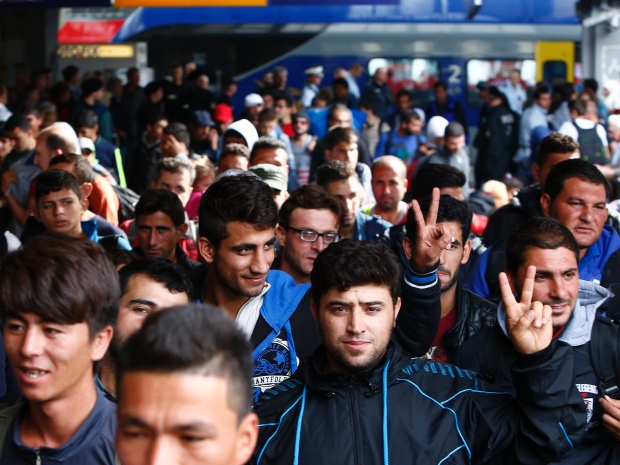 As you know, millions of Syrian, Middle Eastern, and African refugees have risked everything to come to Europe. In their previous life, they did not move or breathe without an overlay of religious tradition. Their Muslim faith was entrenched into their waking, walking, and resting habits. And I wonder: will they be able to fit into the secular EU society? Based on recent history, the answer is not encouraging.
As you know, millions of Syrian, Middle Eastern, and African refugees have risked everything to come to Europe. In their previous life, they did not move or breathe without an overlay of religious tradition. Their Muslim faith was entrenched into their waking, walking, and resting habits. And I wonder: will they be able to fit into the secular EU society? Based on recent history, the answer is not encouraging.
The cultural, linguistic, and religious differences of the previous generations of Arab immigrants from Tunisia, Morocco, and Algeria have too often created rifts with the French and other nations who have taken them in. Adding more Arabs to the mix is straining the goodwill of many Europeans, who are not a melting pot like the U.S. They operate as a group of separate nation states with distinct cultures which they value and wish to maintain. Germans do not want to become French, and the French certainly do not wish to become German, and neither of them desires the Islamization of their motherland. This is only natural, of course, but it creates tension when people feel that their language and way of life are being threatened.
Such integration is even harder when the foreigners arrive in a tidal wave of desperate human need. In spite of the best efforts of many efficient Germans, it is nearly impossible to create adequate living space for hundreds of thousands of newcomers who require food, bedding, heat, sewage, sanitation, schools, clothing, and ongoing financial support. Germany is crying out SOS but not as many EU nations are answering as Angela Merkel had expected.
John Kerry, our U.S. Secretary of State, has pledged to take in up to 100,000 refugees. It is right for our country to help, but there must be a considered method for this to work. America should offer a safe haven to the persecuted Christians. They could find support from our churches and from the many Christian families who would be motivated to give. When we lived in St. Louis in the 1990s, the thriving Jewish community there sponsored the immigration of thousands of Russian and Ukrainian Jews fleeing persecution. This type of community support can work because Americans are generous, especially to those to whom they feel a connection.
With a common faith, the Christians from the Middle East would cleave to our established values of freedom, liberty, and respect for others. They would not arrive on our shores with a shrouded goal of inflicting terror on our citizens; they would not, as an Islamic immigrant leader in Belgium recently said in an news interview, wait patiently until their population was large enough so that they could impose Sharia Law upon their adopted land. At first, the guy’s plan sounded insane, unachievable, but then I realized what the bearded Imam in the prayer cap was saying: once they have enough manpower, they would attempt to impose Sharia Law by force. Mass beheadings on the streets of Brussels….he was smiling and talking with a smugness which conveyed he felt completely confident of attaining his mission.
Wake up, America. You may need a grande Starbucks this time. We do NOT need to bring in people like that. Of course there are Muslims in Iraq, Afghanistan, and elsewhere who have helped the U.S. war efforts, and they should also be given priority among refugees. These men have put their lives and families at risk to be part of our team. They are people who, like my new neighbor, share a common value for human life and freedom. In fact, my neighbor’s brother is applying to immigrate to America with his wife and children. I hope that he makes it.
We must be wise in choosing to offer refuge to those who wish to build up our Democratic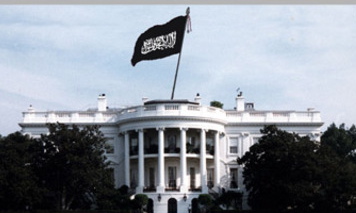 society. Never forget that ISIS has a stated goal of raising their black flag over the White House and 10 Downing Street. Never forget that Sharia Law is the anthesis of Western Civilization and the ideals of the innate rights of each person.
society. Never forget that ISIS has a stated goal of raising their black flag over the White House and 10 Downing Street. Never forget that Sharia Law is the anthesis of Western Civilization and the ideals of the innate rights of each person.
Yes, we must keep our hearts open but also keep our eyes open. We cannot allow ourselves to become generally fearful of Muslims, yet we cannot ignore the suffering and need of our fellow brothers and sisters in Christ at the hands of ISIS and other Islamic terrorists. If we do not help these Christians, what will happen to them? If we had not helped the Jews during the Holocaust, would they still exist today?
Maybe we are the God’s answer to the desperate prayers of these Christians. This is why I was crying while riding the Metro above the beautiful streets of Paris. I wondered: does anyone out there care enough to sacrifice for those who are suffering for Jesus? If so, how can we rally ourselves to help?
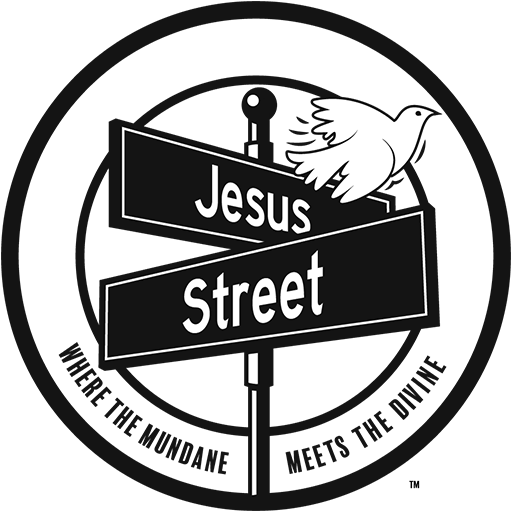
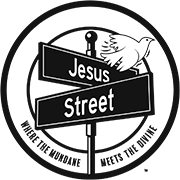
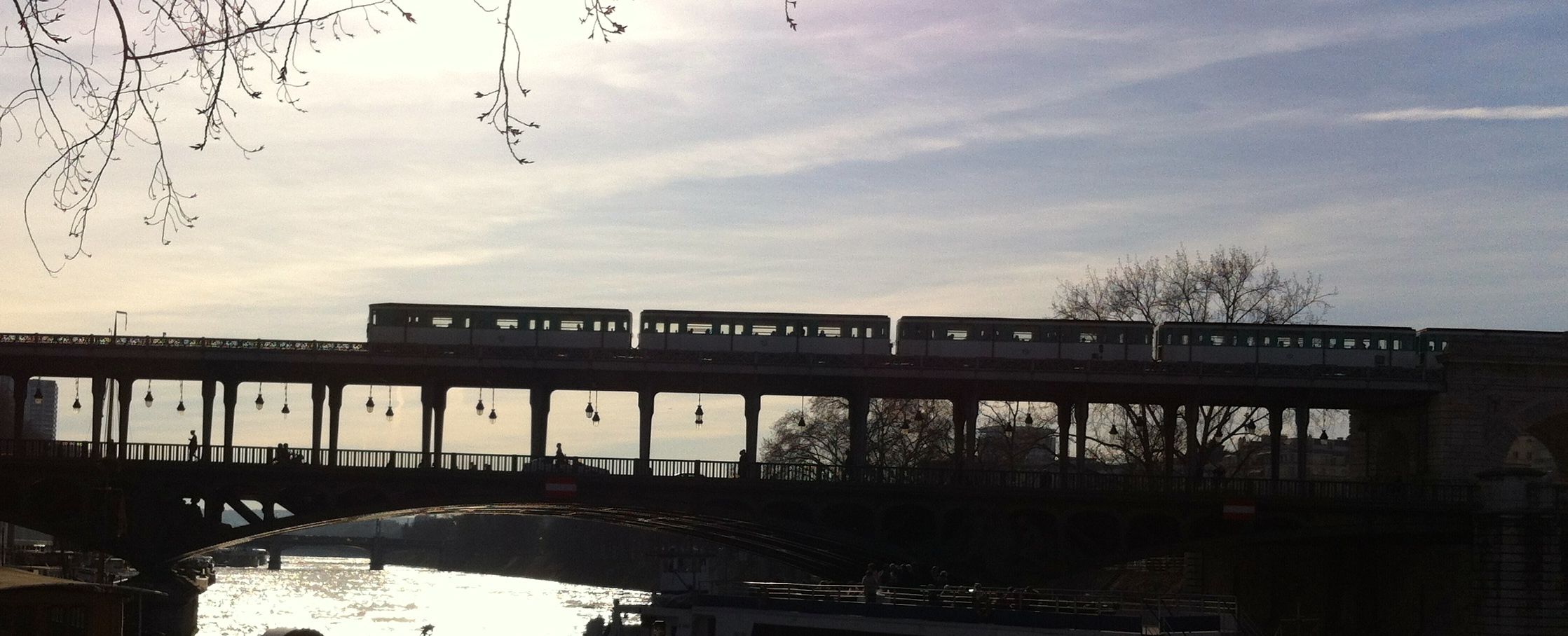

8 Comments
Pringle, perhaps your deep inward call to join our Lord on behalf of the persecuted Christians is the very reason why God took you to France in the first place. Your post here and Marc’s comments were both prophetic. You were the embodiment of His tears, even before the terrible atrocities of last Friday night. I affirm that He is calling you, like Mary, to wash the feet of these dear people with his tears.
Martha: Your words are deeply touching. It is my prayer that God will allow me to join the work that He is doing on behalf of the persecuted Christians. My heart has been opened to them and yes, it was opened before the horrors of last Friday, which was a gateway to fear for so many of us. I feel the Lord working to keep my heart open and to trust Him and to remain unafraid. Thank you for your encouragement.
Hi, Pringle,
Your example of outreach to your neighbors, especially in the midst of the current events, is pivotal for people everywhere. You are God’s hands. You are the face of a compassionate God for those who do not know God. I am praying for you and Paris, especially tonight. Kathryn
Pringle, Thank you for a window into your European world. Man’s clannish, self preserving nature is a powerful force to overcome. The USA is a miracle of God’s grace. The enormity of this migration is truly overwhelming. Your example and call to action is challenging. Father, Help us to do Your will. Reveal Your pain and concerns to us and show us how to glorify You and help our fellow man. Amen
Loved this, Pringle. Beautifully expressed.
That was not you alone weeping. It was incarnational. God was weeping too.
Marc: your comment hits home. I believe you are right. The sorrow was so deep and beyond what I would normally feel. It would not be ignored, even in the awkwardness of a public place. Now I am praying for the Lord to allow me to join Him in whatever work He is doing to help these persecuted Christians. Where to begin? I have received Proverbs 3:5-6 “Trust in the Lord with all of your heart and lean not on your own understanding; acknowledge Him in all your ways, and He will make your paths straight.”
Nice essay. I agree but how can we rally? Our government does not seem to see things the same way. They seem to have no interest in helping Christians at all or the muslims who have risked their lives to help us.